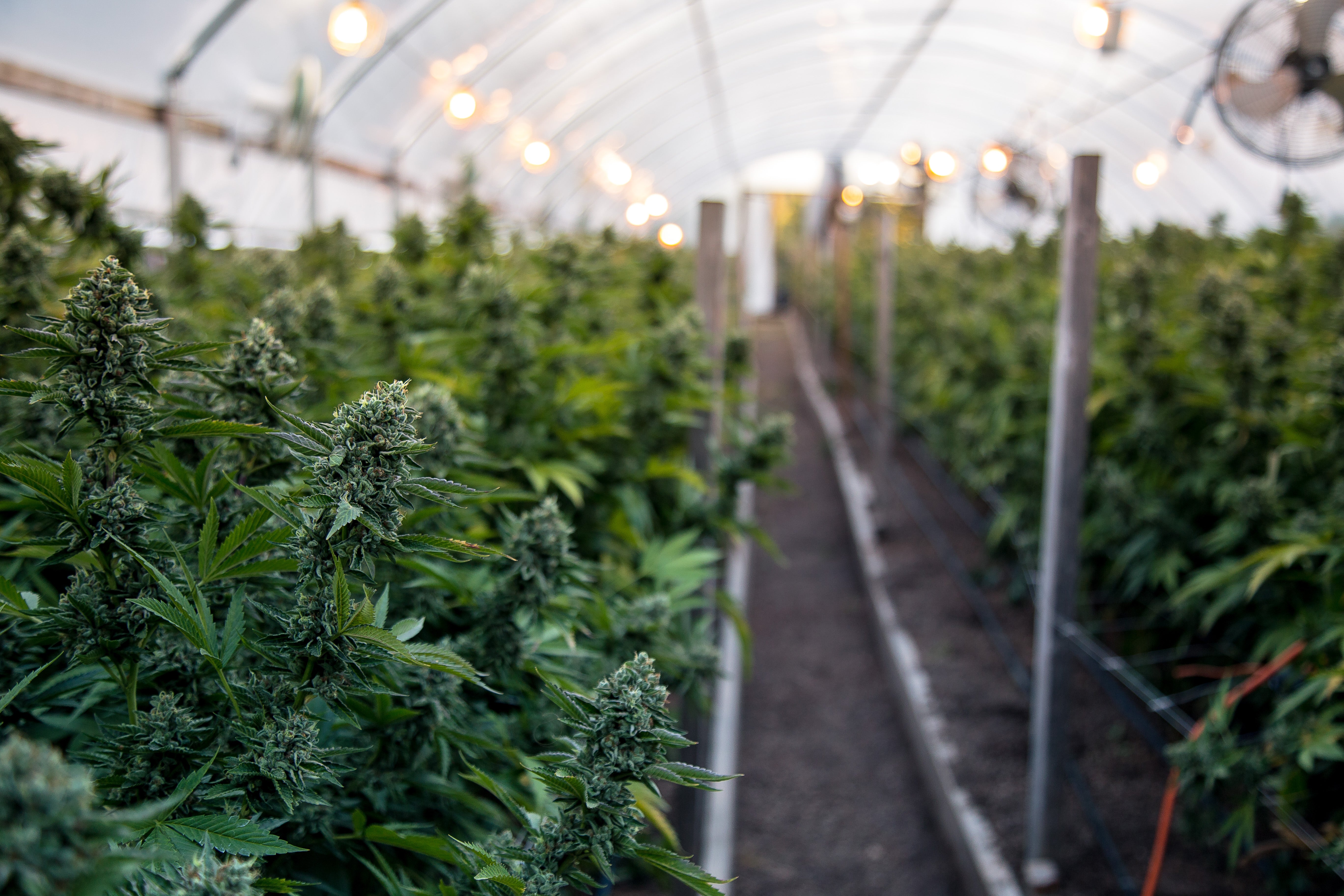Illegal cannabis growers are stealing water amid California’s drought, officials say
In a recent sting, Los Angeles County, federal, state and local law enforcement disrupted hundreds of allegedly illegal cannabis cultivations, arresting 131 people and seizing 33,480lb of cannabis

Your support helps us to tell the story
From reproductive rights to climate change to Big Tech, The Independent is on the ground when the story is developing. Whether it's investigating the financials of Elon Musk's pro-Trump PAC or producing our latest documentary, 'The A Word', which shines a light on the American women fighting for reproductive rights, we know how important it is to parse out the facts from the messaging.
At such a critical moment in US history, we need reporters on the ground. Your donation allows us to keep sending journalists to speak to both sides of the story.
The Independent is trusted by Americans across the entire political spectrum. And unlike many other quality news outlets, we choose not to lock Americans out of our reporting and analysis with paywalls. We believe quality journalism should be available to everyone, paid for by those who can afford it.
Your support makes all the difference.California’s deepening drought is creating another big problem for authorities: water theft.
Water thieves, many of them illegal cannabis growers, are tapping into fire hydrants and drilling unauthorized water wells, according to officials, threatening the water supply for residents, according to officials.
In a recent sting in Antelope Valley in northern Los Angeles County, federal, state and local law enforcement officers disrupted hundreds of allegedly illegal cannabis cultivations in the area.
They arrested 131 people and seized 65 vehicles, including two water trucks. Authorities recovered $28,000 (£20,208); 33,480lb of cannabis; and dozens of firearms. Nineteen people were charged with water theft.
“Most Californians would be shocked and disappointed at the amount of water these unlicensed, illegal grows are using, especially as California suffers from a drought,” Curt Fallin, the Drug Enforcement Administration’s associate special agent in charge, said in a news release as officials unveiled the operation on 7 July. “By our calculation, the illegal grows in Los Angeles, Riverside and San Bernardino counties require an astounding 5.4 million gallons of water a day, every day,” Mr Fallin said.
The alleged water thefts come as much of the western half of the United States is in the midst of a severe drought. The extreme dry spell is especially bad in California and the Southwest, but it also stretches into the Pacific Northwest, much of the Intermountain West and even the Northern Plains.
A study published in the journal Nature last year said that uncertain supply and growing demand mean more of the global water supply is being stolen every year, as climate change drives longer and more severe droughts around the world.
Water theft is a long-running issue in California, according to officials, but the severity of the current drought and the increasing number of illegal cannabis operations are exacerbating the problem.
In 2020, Narcotics Bureau detectives identified 150 illegal outdoor cannabis growing operations in the Antelope Valley. This year, investigators conducted reconnaissance flights and identified more than 500.
“What began as water theft became the infiltration of organised crime groups who are trafficking & smuggling people, threatening residents, polluting & trespassing,” Kathryn Barger, the Los Angeles County supervisor, tweeted after the sting.
Last week, deputies with the Humboldt County Sheriff’s Office Marijuana Enforcement Team served 23 search warrants to investigate illegal cannabis cultivation in four watersheds in the county, about 270 miles north of San Francisco.
Scientific studies showed these watersheds were losing water flow at an “alarming rate” because of illegal commercial cannabis cultivation, the sheriff’s office said in a statement Friday.
The law enforcement team destroyed more than 35,000 cannabis plants and documented about 100 environmental violations. They also found juvenile fish in dammed pools in the watersheds where water was being pumped with large gasoline-powered pumps. No one was arrested, but the cases were forwarded to the district attorney’s office for review.
The watersheds are home to protected species, such as coho and Chinook salmon and steelhead trout, that were already grappling with unprecedented drought conditions.
“Illegal cultivation activities during a drought year put an exuberant amount of pressure on already strained fish and wildlife resources,” the sheriff’s office said in a news release, adding that last week’s operation “will help to conserve salmon and steelhead habitat critical for species survival.”
The Washington Post
Join our commenting forum
Join thought-provoking conversations, follow other Independent readers and see their replies
Comments